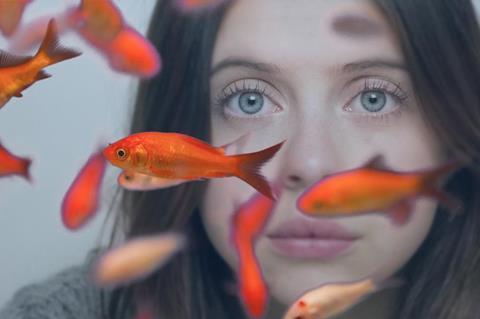Dir: Susan Johnson. US, 2016, 98 mins

British actress Bel Powley has already demonstrated with Diary Of A Teenage Girl that she is more than capable of tackling an abrasive, difficult character and making the audience love her. Even so, the title role in this first feature stretches her talent to disarm to its limits.
With a twinkly piano score and a screenplay that embraces the cute boy next door cliché unapologetically, this is not a film which challenges the stereotypes of teen coming of age movies
Carrie is 19 years-old, clever and profoundly disappointed with the rest of humanity. And teenagers who wear their moral and and intellectual superiority like a badge tend to be rather hard to warm to. Adapted from a novel by Caren Lissner, the film ultimately pulls back from making Carrie too stridently unlovable, revealing through a series of flashbacks the circumstances that made her into a teenaged misanthrope, cynical beyond her tender years.
Light in tone and more sweet than bitter, this story of a girl who learns to reconnect with the world seems best suited to a young adult audience. The Manhattan backdrop and Powley’s assured performance are both plus points and it has a feelgood appeal which should help it to connect. That said, it lacks the gnarly complexity and sharp edges that could see it register with a more sophisticated arthouse audience.
We learn much about Carrie through the recurring device of her sessions with therapist Dr Petrov (Nathan Lane). It’s no coincidence that Petrov is a close friend of the father whose absence seems to be part of what has turned Carrie in on herself since she graduated from Harvard, four years early at the age of eighteen. In the week since her last therapy session, she has read seventeen books. Does she think that’s normal, enquires Petrov. “I think we both know I’m not normal,” snaps back Carrie, who attacks their conversations with a voice like a chisel.
In a bid to help her achieve happiness, Dr Petrov suggests a checklist of things she should do before the end of the year. Make a friend. Go on a date. Spend New Year’s Eve with someone. Rediscover a childhood pleasure. This last proves particularly challenging. What did she do when she was six that she no longer does? “I wrote several strongly worded letters to oil companies,” says Carrie. And since her conversation contains references to Foucault and her wardrobe consists of lots of shapeless cardigans the colour of old gravy, she is not best suited to the teen dating scene.
Still, she is persuaded to adopt the list and at the same time, her father manages to talk her into taking an evening job as a legal proofreader. And Carrie starts to look beyond the covers of her next book.
With a twinkly piano score and a screenplay that embraces the cute boy next door cliché unapologetically, this is not a film which challenges the stereotypes of teen coming of age movies. However the dialogue is sharp, and Powley’s comic timing is well-tuned.
Production company: Braveart, SMF Productions, Storefront Pictures
International sales: Radiant Films International mimi@radiant-films.com
Producer: Suzanne Farwell, Susan Johnson, Susan Cartsonis, Brent Emery, Lisa Wolofsky
Screenplay: Kara Holden
Cinematography: Gonzalo Amat
Editors: Phillip Bartell
Production design: Curt Beech
Original score: Michael Penn
Main cast: Bel Powley, Nathan Lane, Gabriel Byrne, Vanessa Bayer, Colin O’Donoghue, Jason Ritter, William Moseley





















